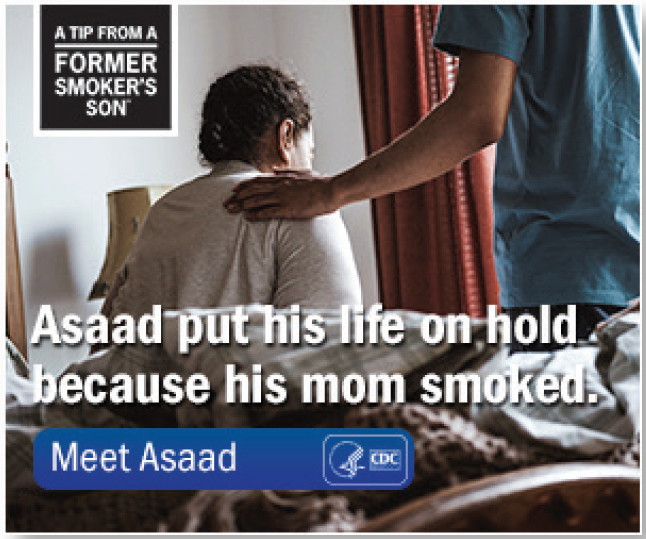April 2020
|
|---|
Update on COVID-19
|
|---|
As the outbreak of this new coronavirus (COVID-19) continues, CDC is learning more about the spread of the virus, the severity of illness, and risk factors. Throughout the outbreak, CDC will share information about how to slow the spread of COVID-19, protect people at high risk for serious illness from COVID-19, and help you stay as healthy as you can. Our newsletter will provide updates on COVID-19 along with the latest cancer information.
|
|---|
Working Together to Slow the Spread of COVID-19 |
|---|
 |
|---|
Many communities across the country are seeing different levels of the coronavirus (COVID-19) outbreak. While anyone can get COVID-19, people with underlying medical conditions such as cancer patients receiving treatment, and survivors, have a higher risk of serious complications from COVID-19. This high risk is due to a weakened immune system from cancer and its treatments. Caregivers and family members are part of the first line of defense in preventing cancer patients and survivors from getting infected with this new virus. But it doesn’t stop there – everyone can do their part to reduce the spread of COVID-19 in communities. For cancer patients, caregivers, and family members, this guide offers steps to stay healthy while staying home. Learn more about what you can do to not get sick, and tips for handwashing and daily life.
|
|---|
Using Data to Improve Cancer Prevention and Control |
|---|
 |
April is National Cancer Control Month, and this raises awareness of efforts to reduce the number of cancer cases and deaths and improve the health of cancer survivors. CDC’s National Comprehensive Cancer Control Program (NCCCP), works with agencies and partners to put proven strategies in action to prevent and control cancer. Strategies include educating people about vaccines, healthy choices, and screenings that can prevent or find cancer early, and help cancer survivors lower their risk of getting cancer again. Thanks to cancer registries, including ones funded by the National Program of Cancer Registries (NPCR), we know where to focus these strategies.
|
|---|
Cancer registry data improve understanding of what groups are affected by cancer and helps focus resources in places that need it the most. A new blog post shares how NPCR is using cloud-based data capture to get cancer data faster in order to quickly connect people to the care and support they may need.
|
|---|
CDC’s Tips Campaign Features New Powerful Stories to Help People Quit Smoking |
|---|
For every person who dies because of smoking, at least 30 people are living with a smoking-related disease. Smoking causes cancer, heart disease, chronic lung diseases, and other conditions that put people at higher risk for serious illness from COVID-19. CDC’s national tobacco education campaign, Tips From Former Smokers® (Tips), shares personal stories of real people living with serious long-term health effects due to smoking and secondhand smoke exposure. The 2020 Tips campaign features new stories in ads available now on television, streaming radio, and social media platforms. One story shares Assad’s experience of becoming a caregiver at age 19 when his mother was diagnosed with cancer. Tips provides a voice to the more than 16 million people living with smoking-related diseases and helps connect people with free resources to help them quit smoking.
|
|---|
New CPSTF Recommendation on Community Health Workers and Cancer Screening |
|---|
 |
Screening checks your body for cancer before you have symptoms and helps find cancer at an early stage, when treatment is likely to work best. The Community Preventive Services Task Force (CPSTF) helps build the evidence base to promote and increase cancer screenings for underserved populations. The CPSTF recommends interventions that engage community health workers to increase screening for breast, cervical, or colorectal cancer. These interventions use approaches such as group education to increase community demand and assistance with appointment scheduling to improve community access to screening services.
|
|---|
Evidence shows an increase in screening rates when community health workers deliver interventions independently or as part of a team.
|
|---|
Research Spotlight |
|---|
New from the American Society for Colposcopy and Cervical Pathology: ASCCP Risk-Based Management Consensus Guidelines are designed to safely triage individuals with abnormal cervical cancer screening results and address the need for simplicity and stability in clinical guidelines while anticipating continued technologic advances in cervical screening methods. These guidelines were developed by nearly 20 professional organizations and patient advocates.
|
|---|
Did You Know?
|
|---|




































No hay comentarios:
Publicar un comentario